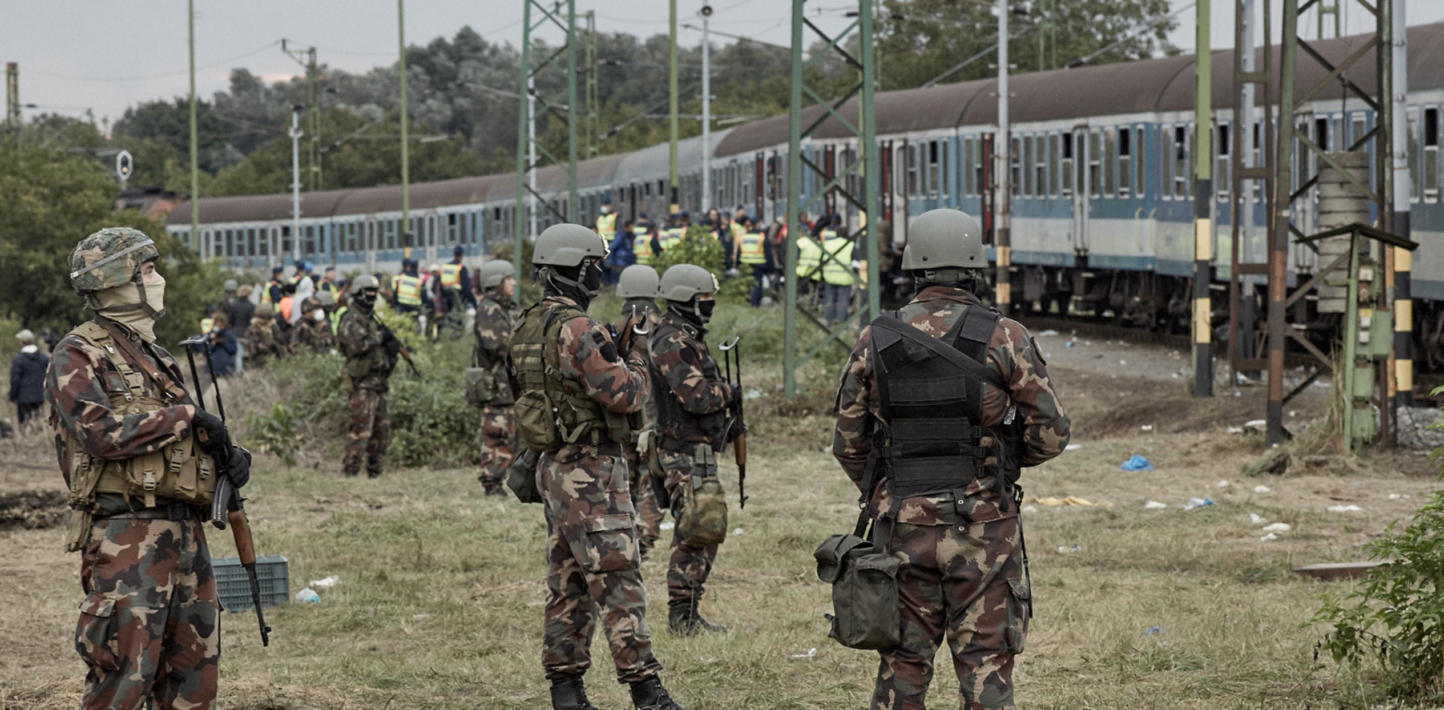PHOTO: © Tomas Rafa
The Hungarian government has invested more than 1OO million euros on razor-wire fencing and border controls to keep refugees and migrants out, triple the amount it spends yearly on receiving asylum seekers, Amnesty International revealed in a new briefing published today.
The briefing, Fenced Out, outlines how Hungary’s draconian measures to control its borders have repeatedly violated international law. As EU ministers gather in Luxembourg today for high-level meetings to discuss the crisis, Amnesty International is calling on the EU to hold Hungary to account for its human rights failures and to protect people on the move by creating safer, legal routes before winter hits.
“Hungary is a few razor-wire coils away from completely sealing off its borders with Croatia and Serbia. Even those that do manage to squeeze through the key-hole are almost certain to be returned to Balkan countries of transit,” said
Hungary is a few razor-wire coils away from completely sealing off its borders with Croatia and Serbia. Even those that do manage to squeeze through the key-hole are almost certain to be returned to Balkan countries of transit.
John Dalhusien, Amnesty International Director for Europe and Central Asia
“Hungary is effectively transforming itself into a refugee protection free zone, with blatant disregard for its human rights obligations and the obvious need to work with other EU and Balkan countries to find collective, humane solutions to the current crisis,” said John Dalhuisen.
The combination of building razor-wire fences and criminalizing those who do break through and enter the country irregularly, as well as the rush to return them to Balkan transit countries, is designed to isolate Hungary from the global and European refugee crisis. This comes at the wholesale expense of the respect for human rights.
Amnesty International is calling on the EU member States and institutions to prevent further escalation of human rights violations in Hungary by activating the preventive mechanism foreseen under Article 7(1) of the Treaty of the European Union. The mechanism allows the European Council to issue a warning to member states where there is “a clear risk of a serious breach” of the respect for the rule of law and human rights.
“The EU has the power to trigger formal discussions with Hungary over its appalling treatment of refugees and migrants and send a clear message that ‘enough is enough’ to those States that disregard EU and international law. The EU should do this before it is too late,” said Iverna McGowan, Acting Director of Amnesty International’s European Institutions Office.
“Scrutiny of the human rights situation in Hungary has repeatedly fallen through the cracks, with member states and institutions endlessly passing the buck on who is ultimately responsible for upholding human rights in the EU. This gap must be urgently bridged with a stronger response to human rights violations by EU member States and institutions alike.”
Amnesty International drew on testimony and observations compiled from extensive in-country research in September. Researchers examined the police treatment of refugees and migrants, reception conditions, as well as the application of new restrictions on access to asylum in the country.
The Hungarian Parliament has been ushering in new laws resulting in an aggressive response that includes flanking its borders with soldiers and police authorized to use rubber bullets, tear gas grenades and pyrotechnical devices. Armoured vehicles mounted with machine guns, and soldiers armed with Special Forces style firearms have been positioned along the border with Croatia.
Testimonies reveal the repeated use of excessive force by the Hungarian authorities.
Hiba, a 32-year-old asylum-seeker from Iraq, suffered a fracture to her thigh after being pushed by a Hungarian police officer against a wall at a train station in Budapest.
“I have been living in uncertainty and stress for months,” said Hiba, now in Germany. “We are now waiting for a decision on our asylum claim but people [other asylum-seekers] are telling us we might be rejected and sent back to Hungary and then back to Iraq. But there is no way how we can go back to Tikrit, it’s not safe.”
Other new laws have allowed Hungary to place Serbia on a list of safe countries of origin and transit, to which the asylum seekers are now to be returned, without regard for the severe obstacles they face in accessing protection in that country. Refugees and asylum-seekers who enter irregularly also face criminal prosecution, in breach of international human rights law.
The briefing details the Hungarian authorities’ pitiful humanitarian response with a complete lack of adequate reception facilities. In the absence of essential supplies such as food and tents, refugees and asylum seekers massed at Budapest’s main train stations, Keleti, Nyugati and Deli, had to rely on support provided largely by volunteers and through donations.
“I want to start a new life in peace… They are treating us like animals, worse than animals,” said Dina, a 46-year-old Syrian woman who had been taken into police custody and kept for 16 hours without food or water. “It prevents us to stay here. We feel that we are not welcome.”
The briefing highlights the massive disparity between the bulk of anti-immigration spending compared to the budget for processing asylum seekers’ applications. Some 98 million euros have been funnelled into the Hungary-Serbia border fence, at least three times the 27.5 million euros budget of the Office of Immigration and Nationality for 2015.
“The cost of these abhorrent anti-refugee operations is staggering and comes at the price of the rights, health and well-being of thousands of people,” said John Dalhuisen.
“This money would be far more wisely invested in saving lives and improving futures. It’s time for all EU member states to urgently invest in a compassionate and coordinated solution.”


